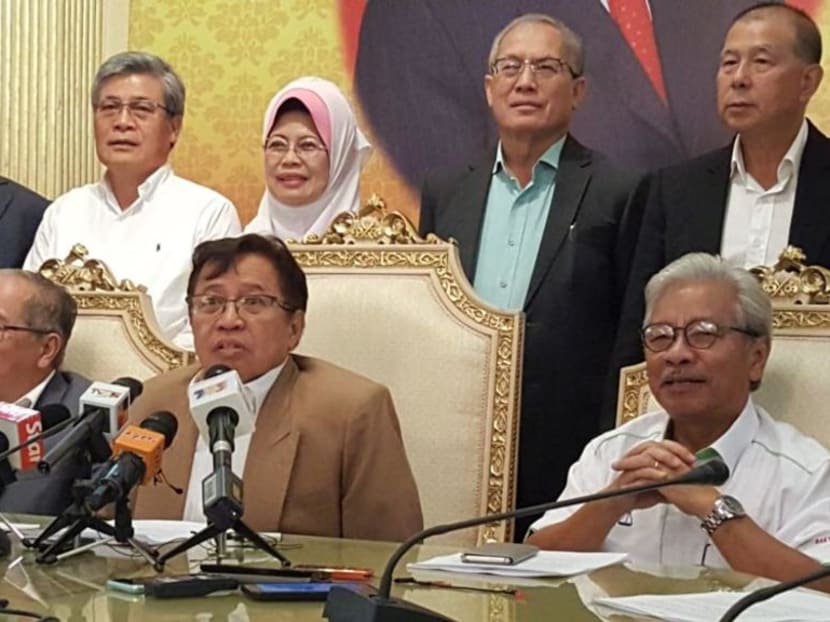For Sarawak, oil royalty dispute blots Pakatan Harapan's first 100 days
KUCHING — For Sarawakians, Pakatan Harapan’s (PH) perceived lack of commitment to the fulfilment of its oil royalties and other provisions of the Malaysia Agreement 1963 (MA63) has defined the coalition’s first 100 days in power.

Sarawak Chief Minister Abang Johari Openg announced in June that the state government will leave Barisan Nasional and form a new coalition of Sarawak-based parties known as Gabungan Parti Sarawak (GPS).
KUCHING — For Sarawakians, Pakatan Harapan’s (PH) perceived lack of commitment to the fulfilment of its oil royalties and other provisions of the Malaysia Agreement 1963 (MA63) has defined the coalition’s first 100 days in power.
Mr Abdul Karim Rahman Hamzah, vice-president of Sarawak’s ruling Parti Pesaka Bumiputera Bersatu (PBB), said PH’s failure to increase the state’s oil royalty from five to twenty per cent was “most glaring”.
“PH pledged that this provision would be met within 100 days. Instead, PH leaders have twisted and turned the issue, with different PH leaders giving different interpretations of the provision,” said Mr Karim, who is the state tourism, arts, culture, youth and sports minister.
The Sarawak government and the PH federal government are in dispute over how the oil royalty should be calculated.
Putrajaya said the royalty should be calculated from the net profit on oil and gas extracted in Sarawak while the state government insists it should be calculated from revenue as is widely practised in the oil and gas industry.
Sarawak United People’s Party (SUPP) women chief Kho Teck Wan said the representatives of Sarawak PH had failed to speak up on the matter.
“They should have only one priority and that is to represent Sarawak fighting for its interests, not only during their 100 days but throughout their political careers,” said Ms Kho.
Instead of standing with Sarawakians, she said, PH lawmakers acted as the “federal government agents to negotiate with the state government”.
However, she acknowledged PH’s 10 manifesto promises set “very high standards” which she did not expect the coalition to be able to fulfil in its first 100 days.
“PH was very ambitious and set very high targets for their 100-day promises. I didn’t expect them to fulfil all their promises. So, in that regard, I think they performed as I expected.”
Rise of Sarawak Efforts (Rose) president Anne CJ Teo said the positive feelings and excitement from the change of government were beginning to wear off.
“It is now a time of anxiety and for some, a feeling of ‘how different are they from the previous government?’”
She said nothing had been heard of the cabinet’s special committee for enforcement of MA63 since it was formed last month.
MA63 contains constitutional safeguards and special rights to autonomy accorded to Sarawak.
“Who are the members of this special committee who are supposed to come up with a report within six months?”
PH needs to show that Sarawakian views mattered and that it was addressing local issues, she added.
On the plus side, Ms Teo hailed a government that is “more responsive” to civil society and social influences, which allowed “undoubtedly greater space for discussion”.
“This is heartening and encouraging because for the first time in (our) political history, citizens are waking up to their civil rights and referring to an election manifesto like never before.”
Ms Teo said she believed PH still has “a long way to go” but was hopeful it would improve to become a more effective government.
“We cannot say they have failed nor can we say they have succeeded. We need to keep the hope that they will do the right thing and get on with the job of governing.
“Effectively, we are still in a period of transition and we have yet to achieve the Malaysia baharu (new Malaysia) that we all desire to see.” THE MALAYSIAN INSIGHT






